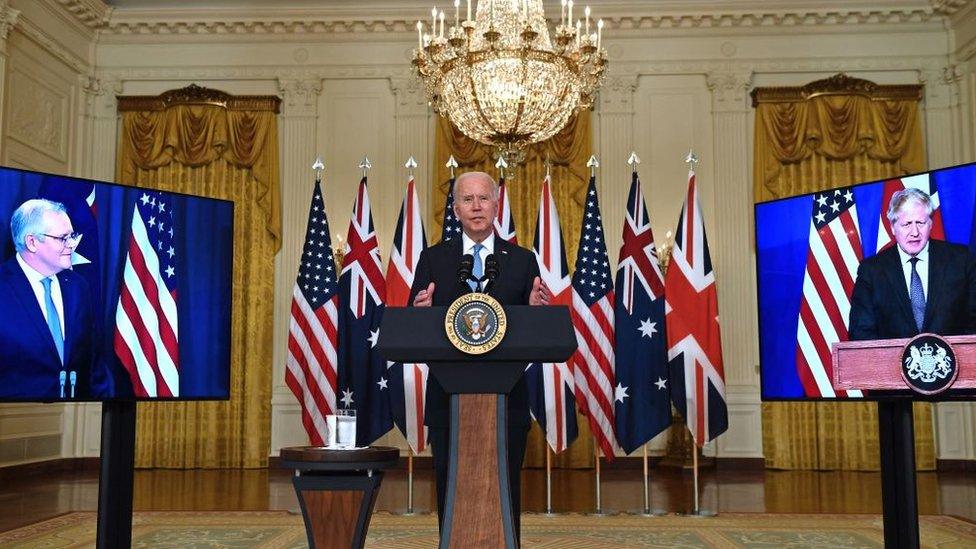Boris Johnson tells Macron: Donnez-moi un break over new pact
- Published
Boris Johnson tells the French to "donnez-moi un break" over the new military pact
Boris Johnson has told the French president to "donnez-moi un break" and get over his anger about a new military pact between the UK, US and Australia.
Speaking to reporters in Washington, he said it was time for "some of our dearest friends" to "prenez un grip".
Paris is angry after Australia signed the Aukus pact to build nuclear-powered submarines, pulling out of a major contract with France in the process.
Mr Johnson insisted they were "not trying to shoulder anybody out".
The Aukus agreement, announced last week, is widely seen as an effort to counter China's influence in the contested South China Sea.
France has expressed anger at the pact, which ends a $37bn (£27bn) deal signed by Australia in 2016 for France to build it 12 conventional submarines.
Speaking later on Wednesday, Mr Johnson said he and other leaders had been a "bit taken aback by the strength of the French reaction".
"We all want to reach out, everyone wants to reach out to Paris and try to sort something out," he told reporters on a flight to New York ahead of a speech later at the UN General Assembly.
The BBC has been told that the prime minister and US President Joe Biden both expressed "astonishment" at France's reaction during their meeting at the White House on Tuesday.
The pair discussed how to reassure the French side, BBC political editor Laura Kuenssberg said, but decided not to invite France or any other country to join the pact - but to look at ways of increasing collaboration in the Indo-Pacific region.
Both the UK and the US believed, she added, that Australian leader Scott Morrison had warned France ahead of the announcement, but were unsure of the exact manner of those conversations.
Australia’s ‘risky bet’ to side with US over China
In the days after the deal was announced, French foreign minister Jean-Yves Le Drian described the move as a "stab in the back".
France's defence minister then called off talks with her UK counterpart, Ben Wallace, who tried to reassure France saying that there had been no intent to "upset or drive a wedge between us and France".
And in a rare step among allies, French President Emmanuel Macron ordered the recall of the French ambassadors to Washington and Canberra.
However, France's ambassador will now return to the US following a call between Mr Macron and US President Joe Biden on Wednesday.
During the call, the two leaders agreed that the situation "would have benefitted from open consultations among allies on matters of strategic interest to France and our European partners, " a joint statement said.
White House spokeswoman Jen Psaki said the half-hour call was "friendly", and Mr Biden hoped it was a step towards "returning to normal".
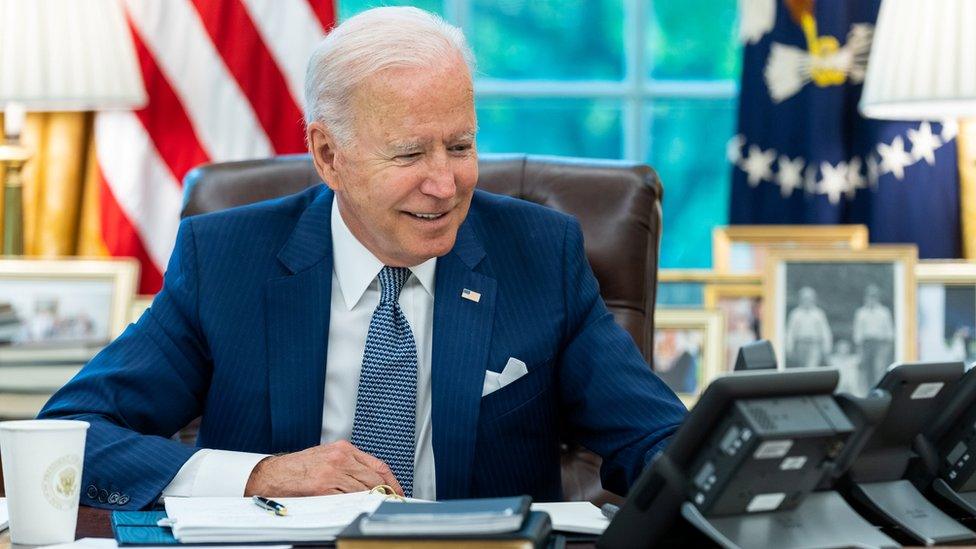
The White House said Joe Biden had requested the call with Emmanuel Macron
On his visit to the US this week, Mr Johnson said the deal was "fundamentally a great step forward for global security. It's three very like-minded allies standing shoulder to shoulder creating a new partnership for the sharing of technology.
"It's not exclusive. It's not trying to shoulder anybody out," he added.
Analysts have described the Aukus alliance as probably the most significant security arrangement between the three nations since World War Two.
The pact will focus on military capability, separating it from the Five Eyes intelligence-sharing alliance which also includes New Zealand and Canada.
While Australia's submarines is the big-ticket item, Aukus will also involve the sharing of cyber capabilities and other undersea technologies.
Mr Johnson is understood to have learned French while attending school in Brussels and, during his time as foreign secretary, he was known to venture into French during press conferences.
He has deployed the "donnez-moi un break" phrase previously on several other issues, including over his 2019 decision to suspend Parliament, and a 2016 warning from a French minister that Brexit could lead to border controls in Calais.
Related topics
- Published23 September 2021
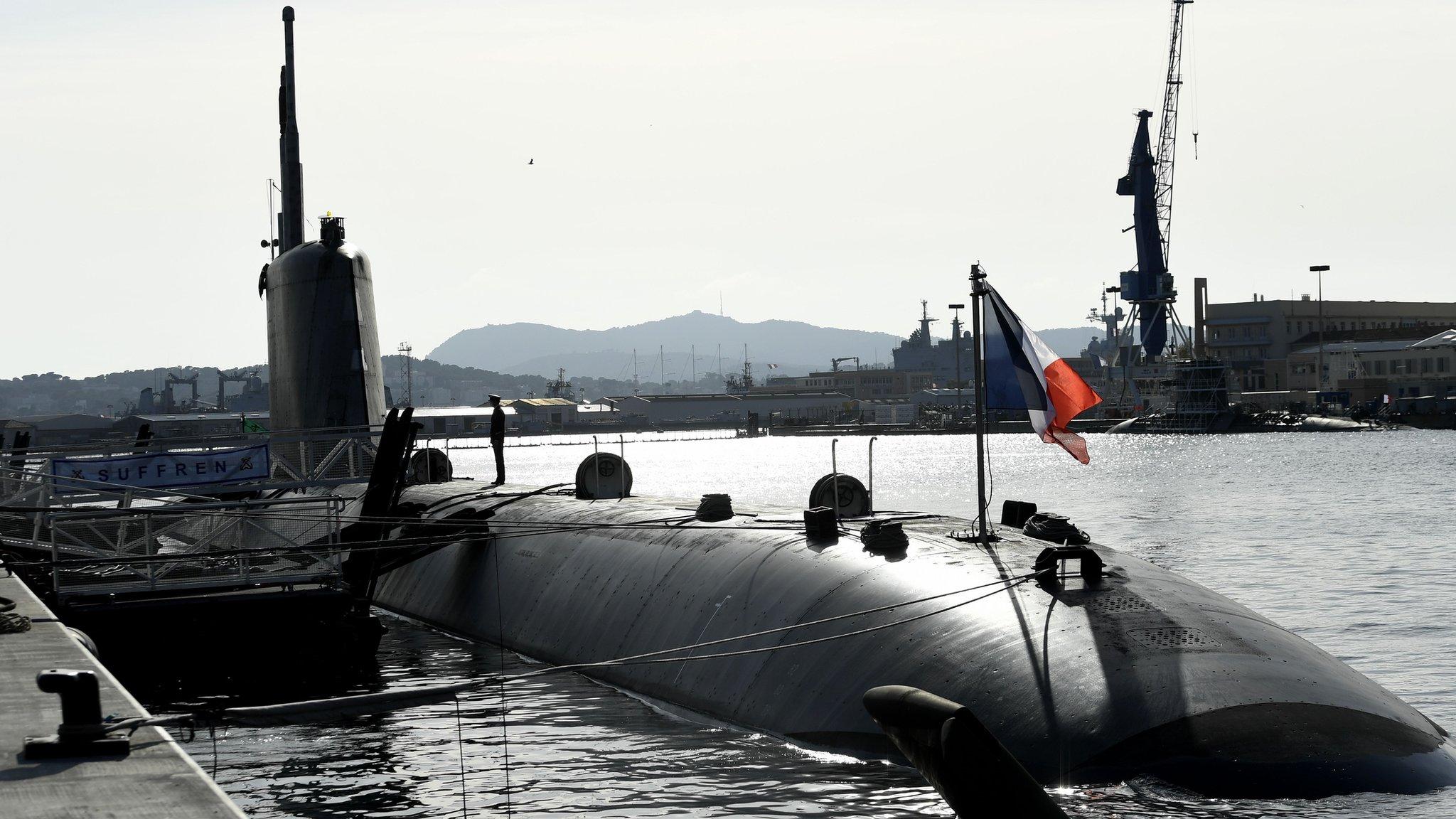
- Published20 September 2021
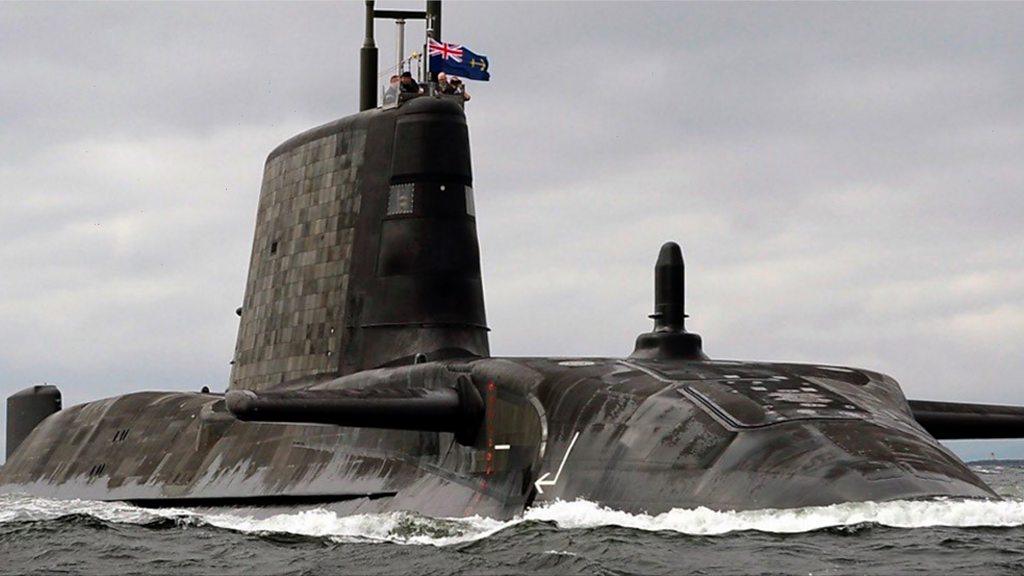
- Published19 September 2021
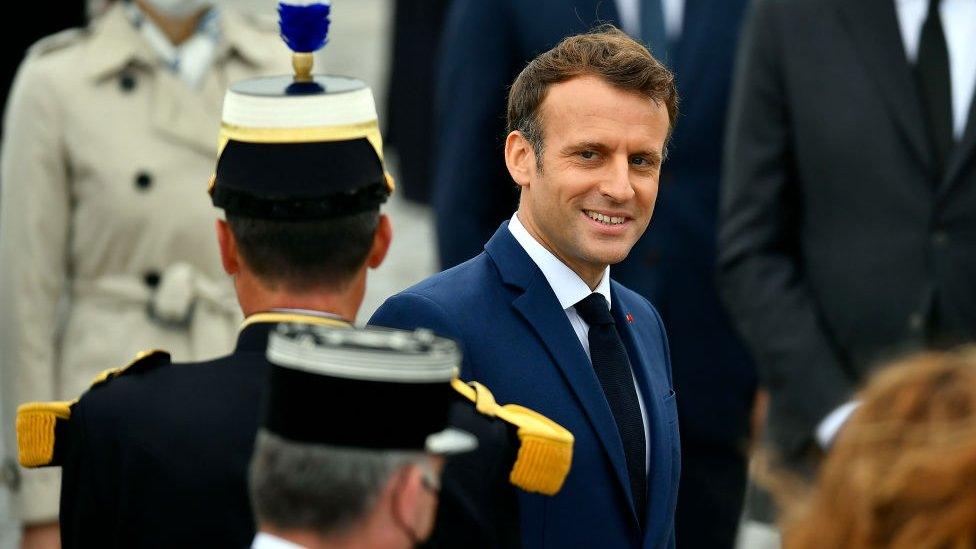
- Published16 September 2021
